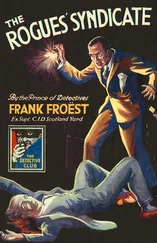She held up a diagram on a sheet of paper. It resembled a pixelated computer printout. Parts of it looked abstract, but there were some clearly identifiable shapes.
'The top lines represent the numbers one to ten and contain information on our decimal system. Below that are the atomic numbers of five chemical substances: water, carbon, oxygen, nitrogen and phosphorus. All five substances are crucial to life on this planet. The message continues with extensive information about the biochemistry of the Earth, with formulae for our DNA bases and sugars, the structure of the double helix and so on. The final third of the message shows an image of the human form, linked directly to the representation of DNA, from which the recipient should be able to deduce the nature of evolution on earth.

Our units of size wouldn't mean anything to an alien intelligence, so the wavelength of the message was used to convey the average human height. Following on from there is a diagram of our solar system, and then, to round it all off, we've got details of the appearance, dimensions and design of the Arecibo radio telescope from which the message was sent.
A polite invitation for them to visit our planet and eat us alive,' said Vanderbilt.
'That was exactly what concerned the authorities. But we've always had an answer to that: the aliens don't need our invitation. Humanity has been sending radio waves into space for decades. All our radio traffic goes up there – including all the chatter from intelligence agencies. You don't need to decode those signals to know that they must have been sent by a civilisation with technology.' Crowe put down the diagram. 'We expect the Arecibo message to take twenty-six thousand years to reach its destination, so it'll take fifty-two thousand before we receive a reply. You'll be pleased to hear that our underwater message will be faster.
We're going to proceed in stages. Our first communication will be straightforward. You were partly right, Major Peak – we'll be sending them two sums. If they're sporting, they'll answer. The first exchange is designed to prove the existence of the yrr and to gauge our chance of initiating dialogue.'
'Why would they bother to reply?' asked Greywolf. 'They know enough about us already.'
'Well, they may know some things, but they won't necessarily know the essential point: that we're an intelligent species.'
'Excuse me?' Vanderbilt shook his head. 'They're destroying our ships, for Christ's sake, so they must know we built them. Why should they doubt our intelligence?'
'Just because we're able to build complex structures doesn't prove we're intelligent. Think of termite hills – they're architectural masterpieces.'
'That's different.'
'Oh, it's no use getting on your high horse, Mr. Vanderbilt. If Dr Johanson is right about yrr culture being based on biology, we need to ask ourselves whether they think we're capable of focused, structured thought.'
'You mean they might think we're…' Vanderbilt grimaced '. . . animals?'
'Vermin, even.'
'A kind of fungal infection.' Delaware grinned. 'We're being targeted by a pest-control agency.'
'I've been looking at our enemy's mindset,' said Crowe. 'To see if there's anything it can tell us about these creatures' way of life. It's all speculation, I know, but we need to find a way of focusing our efforts. At any rate, it struck me that while we've had no shortage of aggression directed towards us, there hasn't been a single diplomatic overture, so I asked myself why. Maybe they don't set any store by diplomacy – or maybe it hasn't occurred to them to try. Obviously, a pack of army ants wouldn't bother with diplomatic niceties before they swarmed all over their prey, but in their case, attacks are guided by finely tuned instincts. The yrr, on the other hand, have already demonstrated a high degree of insight and awareness in their ability to plan. Their strategies are creative. If the yrr are intelligent, and they're aware of it, they clearly don't share our notions of morality and ethics. Maybe in their logic the only way forward is to attack us relentlessly, so if we want them to stop, we'll have to give them a persuasive reason why.'
'I don't see what good a message will do when they're already chomping through our deep-sea cables,' said Rubin. 'Surely they'd be able to glean all the information they could possibly need.'
'That's not quite true.' Shankar chuckled. 'SETI's Arecibo message is only intelligible to extra-terrestrials because it was put together with an alien intelligence in mind. That's not something we bother about when we communicate with each other on a day-to-day basis. To an alien intelligence, all that cable data would look like an almighty mess.'
'Absolutely,' said Johanson. 'But let's see what else we can deduce. Sam's using my idea of a biologically based technology. Why? Because it's the most obvious conclusion to draw. They don't need machines or equipment, just genes. Their weaponry consists of organic life-forms – strategic mutations. I'd say they're tied to nature in a way that humans aren't. You can see how they might be far less estranged from their natural environment than we are.'
'Noble savages – is that what you mean?' asked Peak.
'I don't know about noble . It's pretty reprehensible to go around polluting the atmosphere with exhaust fumes, like we do – but what about breeding and manipulating other life-forms to suit your own needs? Is that any better? Anyway, what interests me is how they might perceive our threat to their habitat. We're always talking about the destruction of the rainforests. Some people militate against it, others keep chopping. But what if, metaphorically speaking, the yrr are the rainforests? I'd say there's evidence for that in the way they deal with biology, which brings me to my second point. With the exception of the whales, the organisms they're using are almost exclusively creatures that occur en masse- worms, jellies, squid, mussels, crabs. They're organisms that live in shoals or swarms. Millions of creatures are being sacrificed for the yrr to achieve their goals. The individual doesn't matter to them. Would humans think like that? Sure, we breed viruses and bacteria, but for the most part we use man-made armaments in manageable quantities. Mass biological weaponry isn't really our thing. But the yrr seem fairly expert at it. Why? Well, maybe shoals and swarms are what they know best.'
'Do you mean… ?'
'I think we're dealing with a collective intelligence.'
'And how does a collective intelligence experience the world?' asked Peak.
'A fish in a fishing net would ask the same about the fisherman, assuming fish could think,' said Anawak. 'Why should he and millions of his friends be forced to die in nets? Surely that's mass murder.'
'Hardly,' said Vanderbilt. 'More like fish-fingers.'
Crowe gestured for silence. 'I agree with Dr Johanson,' she said. 'And if we're right, it would seem that the yrr have taken a collective decision to fight us, and that ethics and empathy aren't part of the deal. I know in the movies you can melt the heart of even the nastiest alien by looking at it with puppy-dog eyes, but that isn't going to work. No, we need to make communication seem more intriguing than violence. The yrr would never have been able to accomplish half of what they've done if they weren't au fait with physics and math, so let's challenge them to a mathematical duel. Hopefully, at some point their logic – or maybe even some kind of moral code – will kick in and persuade them to rethink their behaviour.'
'They must know we're intelligent,' Rubin insisted. 'If any species stands out because of its superior understanding of physics and maths, it has to be us.'
Читать дальше













